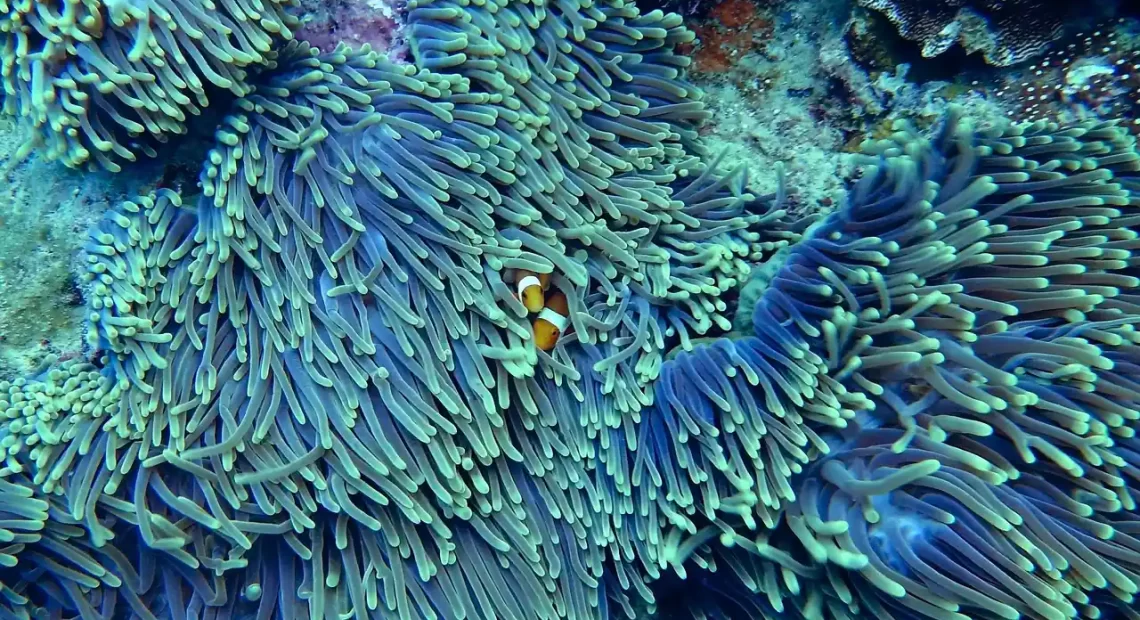Preserving the Jewels of the Ocean: The Importance of Coral Reef Protection

Introduction:
Coral reefs, renowned as the magnificent “jewels of the ocean,” hold a paramount significance in preserving the well-being and balance of marine ecosystems. These captivating and diverse underwater habitats are not only visually striking but also provide essential benefits to both marine life and humankind. In this article, we will discuss the profound importance of coral reef protection, exploring the myriad of threats they face and discussing the strategies imperative for the preservation of these invaluable marine treasures.
Coral Reefs
The Haven of Biodiversity and Natural Splendour: Coral reefs stand as remarkable marvels of nature, teeming with an extraordinary range of marine species. These underwater wonderlands offer a haven, providing habitat, shelter, and breeding grounds for a myriad of organisms, including fish, crustaceans, molluscs, and endangered species like sea turtles and sharks. The intricate structure of coral reefs fosters intricate ecological relationships, ensuring the survival and proliferation of numerous marine species.
Moreover, the significance of coral reefs transcends their ecological contributions. They serve as natural barriers, shielding coastlines from erosion and buffering the impact of storms and waves. Additionally, coral reefs play a vital role in carbon sequestration, assisting in mitigating climate change. In fact, the goods and services provided by coral reefs, including fisheries, tourism, and shoreline protection, are estimated to be valued at approximately $30 billion annually.
Threats to Coral Reefs
An Imminent Peril: Regrettably, coral reefs face an array of threats that jeopardise their existence. Climate change and ocean acidification pose formidable risks to these delicate ecosystems. As ocean temperatures rise, corals experience bleaching—a phenomenon in which they expel their symbiotic algae, resulting in their vibrant colours fading and rendering them vulnerable to disease and mortality. Additionally, the escalating acidity of the oceans, due to the absorption of carbon dioxide, impedes coral growth and reproduction.
Overfishing and destructive fishing practices intensify the pressure on coral reefs. Activities such as blast fishing and the use of cyanide to stun fish inflict direct physical harm to coral colonies. Furthermore, the removal of crucial fish species disrupts the delicate balance within the reef ecosystem, negatively impacting its overall health and resilience. Pollution from land-based sources, such as agricultural runoff, sewage, and marine debris, poses a substantial threat. Nutrient runoff leads to harmful algal blooms, suffocating corals and impeding sunlight penetration. Sedimentation from erosion diminishes water clarity, impeding coral growth, while chemical pollutants compromise coral health and disrupt the intricate ecological interactions within the reef ecosystem.
The Ripple Effect
Implications of Coral Reef Degradation: The degradation of coral reefs bears far-reaching consequences for both marine life and human well-being. As corals decline, the loss of biodiversity reverberates, resulting in the disappearance of unique and irreplaceable species. The collapse of fish populations within coral reefs disrupts marine food chains, undercutting the livelihoods of coastal communities dependent on fishing.
Economically, the decline of coral reefs adversely affects tourism, as these underwater marvels attract millions of visitors annually. The loss of coral reefs can inflict devastating blows on local economies, depriving communities of essential income and employment opportunities. Moreover, the decline of healthy coral reefs exacerbates climate change, as they play a pivotal role in carbon sequestration, aiding in the regulation of the Earth’s climate.
Strategies for Coral Reef Protection
Preserving coral reefs necessitates collaborative efforts and a comprehensive approach. Conservation and restoration initiatives assume utmost importance, entailing the establishment of marine protected areas and the implementation of coral reef restoration projects. These endeavours serve to safeguard vulnerable reefs and facilitate their recovery.
Adopting sustainable fishing practices is pivotal in maintaining the delicate balance of coral reef ecosystems. Implementing measures such as fishing quotas, gear restrictions, and enforcing no-take zones can prevent overfishing and minimise destructive fishing practices. Inclusive management of coral reef resources mandates collaboration with local communities and stakeholders.
Efforts to reduce pollution and control sedimentation are paramount in protecting coral reefs. Implementing effective waste management systems, promoting sustainable agricultural practices, and raising awareness regarding the detrimental impacts of pollution on coral reefs are crucial steps. Responsible coastal development that prioritises the preservation of the surrounding marine environment is also imperative.
Championing Ocean Conservation
Ensuring the long-term preservation of coral reefs and marine ecosystems necessitates raising awareness and fostering a sense of responsibility among individuals and communities. Education and public engagement play a pivotal role in encouraging sustainable behaviours, such as responsible tourism practices, reducing plastic consumption, and supporting conservation initiatives. International cooperation and policy advocacy assume great significance in addressing the global challenges faced by coral reefs. Collaborative efforts between governments, NGOs, scientists, and communities can establish comprehensive protection strategies, promote sustainable practices, and influence policies that prioritise coral reef conservation.
Conclusion
Safeguarding the extraordinary treasures of the ocean, coral reefs, stands as an imperative mission for the well-being of marine ecosystems and the communities intertwined with them. By acknowledging the profound importance of coral reef protection and taking resolute action to confront the threats they encounter, we can secure the continued existence of these invaluable habitats. As marine biologist Dr. Gregor Hodgson once eloquently stated, “Conserving coral reefs is a race against time, but it’s a race we must win.”
Resources
Protecting Coral Reefs
These Restoration Projects For Coral Reefs Prove That It’s Not Too Late Yet















